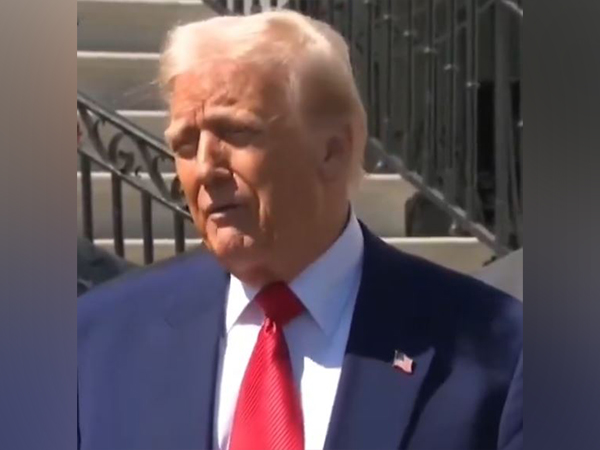Jaishankar meets his UK, Ghana, UAE counterparts, discusses ways to boost bilateral ties
Oct 29, 2022

New Delhi [India], October 29 : External Affairs Minister S Jaishankar on Saturday met his UK, Ghana, and UAE counterparts - James Cleverly, Shirley A Botchwey and Reem Al Hashimy respectively - and thanked them for active participation in the United Nations Security Council special meeting of the Counter-Terrorism Committee (CTC) held here.
Jaishankar met Ghana's Foreign Minister Shirley A Botchwey and discussed cooperation in counter-terrorism, defence and development partnership focused on digital, health, green, food and water.
"Our historical solidarity guides our common efforts to work for our people. Ghana's One village, One Dam and India's Amrit Sarovar initiatives is an apt example," he said in a tweet.
Both leaders also discussed cooperation in counter-terrorism, defence and development partnership focused on digital, health, green, food and water.
Jaishankar also met UK Foreign Secretary James Cleverly. This is the first high-level visit from a UK minister to India since Rishi Sunak took charge as UK's new Prime Minister.
"Noted the progress in our Roadmap 2030. Also discussed the #Ukraine conflict and the Indo-Pacific," Jaishankar said in a tweet.
He also met with UAE Minister of State International Cooperation Reem Al Hashimy.
"Her participation at the UNSC special meeting reflects the trust of our Comprehensive Strategic Partnership. Discussed shared threat terrorism poses to the world and the global responses," he tweeted.
The two-day Counter-Terrorism Committee meeting in India marks the first time since 2015, that the committee has met outside UN Headquarters in New York.
The discussion focussed on three areas: the internet and social media; financing for global terror networks; and the proliferation of unmanned aerial systems, such as drones.
In his speech at the plenary session of the meeting, Jaishankar said terrorism is one of the gravest threats to humanity.
"The UN Security Council, in the past two decades, has evolved an important architecture, built primarily around the counter-terrorism sanctions regime, to combat this menace."
Jaishankar underlined that the internet and social platforms have become potent instruments in the toolkit of terrorists.
"Internet and social media platforms have turned into potent instruments in the toolkit of terrorists and militant groups for spreading propaganda, radicalisation and conspiracy theories aimed at destabilising societies."
He said terrorist groups have recently been using unmanned aerial platforms, such as drones and quadcopters for cross border trafficking of drugs and arms and for carrying out terrorist attacks.
"And such risks are not just limited to India. In Africa, drones have been used by the terrorist groups to monitor movements of security forces and even of UN peacekeepers, making them vulnerable to terrorist attacks. A few months ago, terrorists launched cross-border drone attacks on the UAE and Saudi Arabia targeting civilians and civilian infrastructure, which led to loss of lives and injuries, including to Indian nationals there. India has strongly condemned these cross-border drone attacks both in UAE and Saudi Arabia," he said.
Jaishankar said that India will contribute USD 500,000 to the United Nations Trust Fund for Counter Terrorism this year to aid capacity-building support to member states in combating terrorism.
He made this announcement during his keynote address at the plenary session of the UNSC special meeting of the Counter Terrorism Committee (CTC) on 'Countering the use of new and emerging technologies for terrorist purposes' here today.
Jaishankar highlighted the global threat of terrorism is growing and expanding, particularly in Asia and Africa, despite the UN Security Council's (UNSC) best efforts to combat the "gravest threat to humanity".
The Counter-Terrorism Committee was established by unanimous consent on 28 September 2001, in the wake of the 11 September terrorist attacks in the United States, and all 15 Security Council members sit on it.
The Committee is tasked with monitoring the implementation of measures to enhance countries' legal and institutional counter-terrorism abilities, at every level, locally and internationally.



















